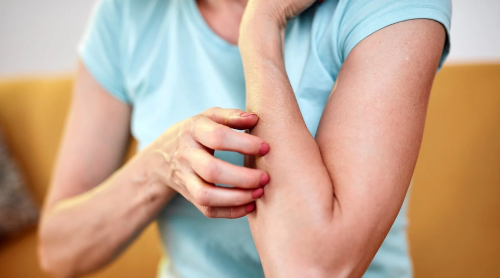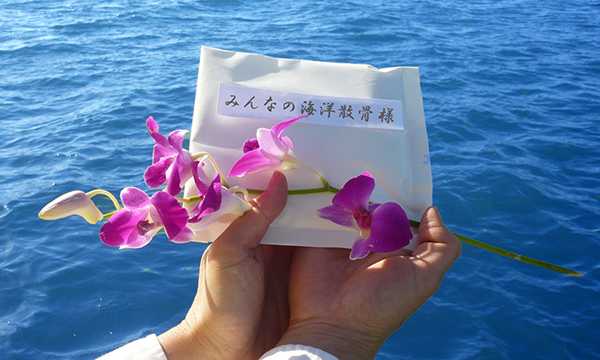東京で信頼できる警備会社をお探しなら|安心・安全のセキュリティサービス
Eczema Relief: A Comprehensive Guide to Creams, Lotions, and Natural Solutions
Eczema, or atopic dermatitis, is a chronic condition that causes red, itchy, inflamed skin. While it has no cure, there are many effective ways to manage flare-ups and keep symptoms under control. Below is a guide to the best creams, lotions, and natural remedies that can help soothe and heal eczema-affected skin.
Eczema, or atopic dermatitis, is a chronic condition that causes red, itchy, inflamed skin. While it has no cure, there are many effective ways to manage flare-ups and keep symptoms under control. Below is a guide to the best creams, lotions, and natural remedies that can help soothe and heal eczema-affected skin.

1. Moisturizers: The Foundation of Eczema Care
Keeping the skin moisturized is the cornerstone of eczema management. Dryness is one of the main triggers for eczema flare-ups, so applying a good moisturizer regularly helps restore the skin's barrier and prevent irritation.
Top Moisturizers for Eczema:
CeraVe Moisturizing CreamThis rich cream contains ceramides and hyaluronic acid, both of which help repair the skin's natural barrier and lock in moisture. It’s ideal for daily use, as it’s fast-absorbing and non-greasy.
Eucerin Eczema Relief CreamContains colloidal oatmeal and ceramide-3 to soothe irritated skin and reduce inflammation. Dermatologists recommend it for eczema relief, making it a trusted choice for sensitive skin.
Aquaphor Healing OintmentA thick, petroleum-based ointment that provides intensive moisture to extremely dry or cracked skin. It’s particularly effective for flare-ups when the skin is cracked and painful.
Vanicream Moisturizing CreamFree from common irritants such as fragrances, parabens, and dyes, Vanicream is formulated for sensitive skin, making it a safe choice for those prone to skin reactions.
2. Topical Steroids: Fast-Acting Relief for Inflammation
Topical steroids are one of the most effective treatments for reducing inflammation, redness, and itching during eczema flare-ups. They work by suppressing the immune response in the skin, which can help calm irritation.
Common Topical Steroids:
Hydrocortisone Cream (1%)Available over-the-counter, this mild steroid is suitable for treating mild eczema flare-ups. It can be applied to most areas of the body, though it should not be used on the face for extended periods.
Triamcinolone Acetonide CreamA medium-potency steroid, often prescribed for more severe flare-ups. It works well for reducing redness and swelling.
Clobetasol Propionate (Ultravate)A high-potency steroid, prescribed for severe or persistent eczema flare-ups. Due to its strength, it’s usually recommended for short-term use to avoid potential side effects from long-term use.
3. Non-Steroidal Alternatives: Soothing, Gentle Options
Some people may prefer to avoid steroids or need alternatives for sensitive areas, such as the face or skin folds. There are several non-steroidal treatments that can provide effective relief without the side effects associated with corticosteroids.
Top Non-Steroidal Treatments:
Tacrolimus (Protopic) and Pimecrolimus (Elidel)These topical calcineurin inhibitors reduce inflammation by suppressing the immune response in the skin. They are a great option for sensitive areas and can be used long-term with fewer side effects compared to steroids.
Colloidal Oatmeal CreamsColloidal oatmeal has soothing properties that reduce itching and inflammation. It's commonly used in over-the-counter creams like Aveeno Eczema Therapy Moisturizing Cream. Oatmeal-based bath treatments are also popular for calming flare-ups.
Coal Tar PreparationsThough less common today, coal tar can be effective in reducing itching and inflammation. Products like MG217 Coal Tar Cream offer eczema relief, though the scent and potential for irritation limit its popularity.
4. Natural Remedies: Gentle, Holistic Approaches
Natural remedies can help complement traditional treatments by soothing the skin and promoting healing. While they might not replace prescription treatments, they can provide additional comfort and reduce symptoms.
Effective Natural Remedies for Eczema:
Coconut OilWith its antimicrobial and anti-inflammatory properties, coconut oil helps moisturize dry skin and protect against infection. Apply virgin coconut oil to affected areas after bathing for optimal hydration.
Aloe VeraKnown for its cooling and soothing effects, aloe vera can help relieve itching and inflammation. It also has natural antibacterial properties that may prevent infection. Use pure aloe vera gel, or apply it directly from the plant.
Manuka HoneyThis special honey has powerful antibacterial and anti-inflammatory properties. It can speed up the healing process and reduce infection risk. Apply a thin layer of manuka honey to inflamed skin and leave it on for about 20 minutes before rinsing.
Essential OilsEssential oils like lavender, chamomile, and tea tree oil can help reduce inflammation and irritation. Mix a few drops with a carrier oil, such as coconut or almond oil, and apply gently to the affected area.
5. Lifestyle Tips for Managing Eczema
Alongside topical treatments, small lifestyle adjustments can make a big difference in managing eczema flare-ups.
Avoid Hot ShowersHot water can strip the skin of moisture, leading to dryness and irritation. Opt for lukewarm water instead, and use gentle, fragrance-free soaps or oatmeal-based products to cleanse.
Wear Soft, Breathable FabricsFabrics like cotton are gentle on the skin and allow it to breathe. Avoid synthetic fabrics like polyester or wool, which can trap heat and cause further irritation.
Track Your TriggersCertain environmental factors, foods, or even stress can trigger eczema flare-ups. Keep a journal to identify what might be causing your flare-ups, and take steps to avoid those triggers.
Manage StressStress is a common eczema trigger. Practice stress-relieving activities like yoga, deep breathing, or meditation to help manage flare-ups.
6. When to See a Doctor
If your eczema isn’t responding to over-the-counter treatments or is causing severe discomfort, it’s important to consult a dermatologist. A doctor can help create a personalized treatment plan and may recommend prescription medications, light therapy, or other interventions to help manage your condition.
Conclusion: Finding Relief for Your Skin
Eczema can be frustrating, but with the right combination of moisturizers, topical treatments, and natural remedies, you can manage flare-ups effectively and soothe your skin. Whether you choose over-the-counter creams, prescription steroids, or natural solutions, consistency is key. By incorporating these strategies into your daily routine and avoiding known triggers, you can enjoy healthier, more comfortable skin.
If flare-ups persist or worsen, consulting with a dermatologist is essential to find the most effective treatment plan for your unique needs. With the right approach, eczema relief is achievable.










